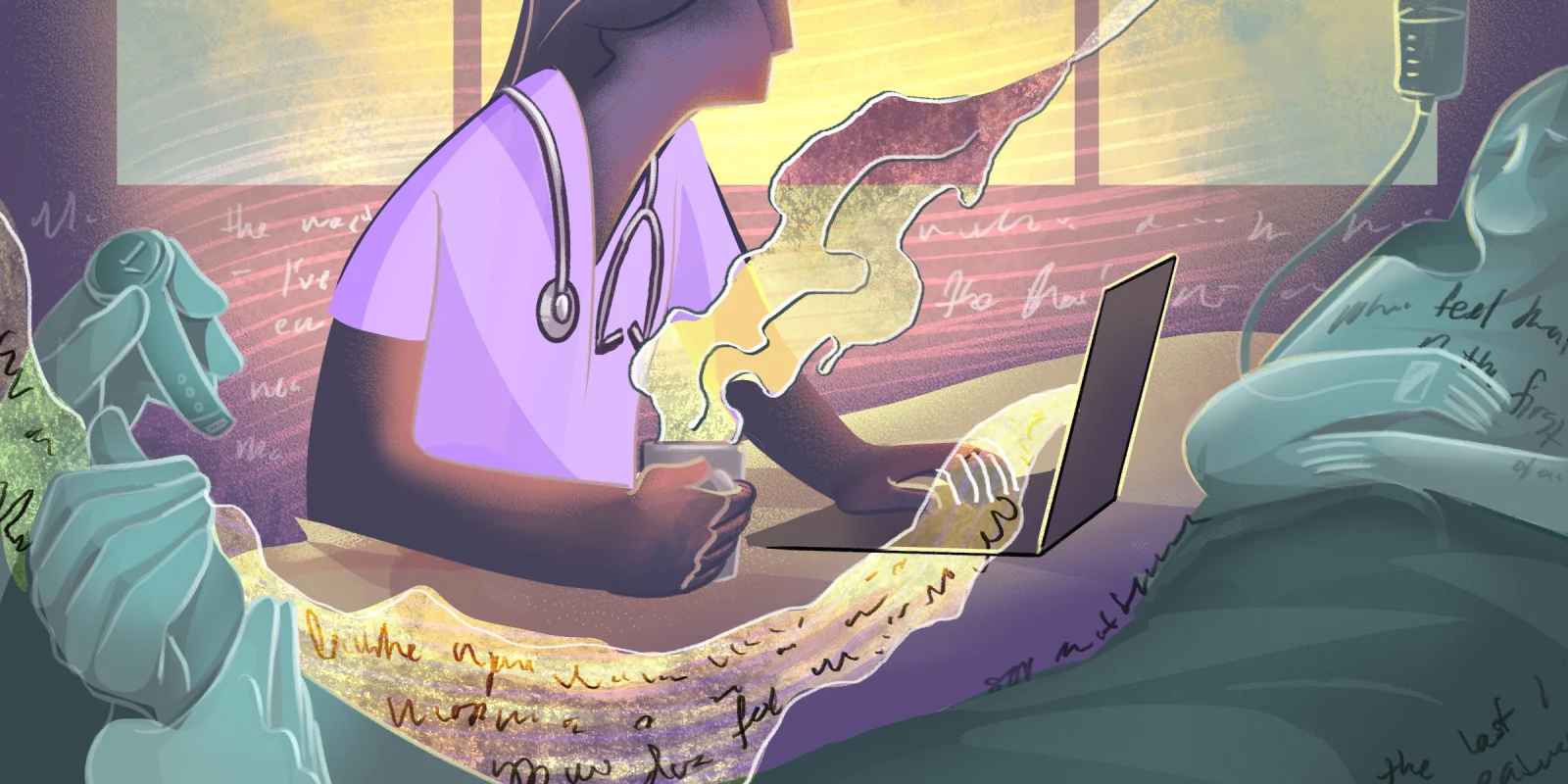According to Jonathan Gottschall in "The Storytelling Animal," “we are, as a species, addicted to story. Even when the body goes to sleep, the mind stays up all night telling itself stories … human minds yield helplessly to the suction of story. No matter how hard we concentrate, no matter how deep we dig in our heels, we just can’t resist the gravity of alternate worlds.”
Humans have always told stories. Before humans could write, they told stories through drawings seen on ancient cave paintings all over the world. Through stories, humans are able to make sense of the world around them. It is also through stories that we have been able to connect with one another.
As clinicians, we are fortunate to hear our patients' stories. When we take a patient’s history, the patient is telling us a narrative about what brought them to us. They give us a glimpse of their lives and their interpretation of what is happening in their bodies, and what they think and feel they need. I recall one of my patients who loved to joke around, describing her stroke and recovery from it as, “her brain going on vacation,” and that she was, “glad to be back.” In gastroenterology, I recall an elderly patient with chronic constipation who came in with a four-page story about her symptoms, including details about the frequency, consistency, and color of her bowel movements, as well as her interventions and how she felt. At the end of her story, she sighed and told me her husband had just passed away and she just wanted the constipation to go away. There was so much more than just constipation in her story. Along with her physical symptoms, there was underlying stress, sadness, and grief from her husband’s recent death.
We may not realize it, but as clinicians, we are also storytellers. When we tell our patients about their possible diagnoses and treatment plans, they are listening to our narrative about what we believe might be going on with them and what can be done about it. For example, in gastroenterology, when I recommended a colonoscopy to a patient with hematochezia, I explained the purpose of the colonoscopy, gave a description of the procedure and possible complications, and then had a discussion about the prep for the procedure. I also used a diagram of the GI system to explain where the scope would go and what would be done if a polyp was found. In allery & immunology, I used a plastic model of an airway to show the narrowing of the airways caused by asthma, and to show how inhalers work in the airway to relieve the symptoms. Although our language is clinical in nature, our words are the stories that patients hear. We must be careful to tell them this story in a way they can understand.
When I became pregnant, I realized how pivotal storytelling was to patients. At the time of my pregnancy, I saw my narrative as that of a strong, independent woman. I told myself that I would have a smooth labor with a natural birth. I was so inspired by the natural birth movement, and I envisioned an empowering entrance into motherhood. I shared this birth plan with the nurse when I was admitted to Labor and Delivery. However, this story did not come true.
The story the ob/gyn told was one I had to accept: that my daughter showed signs of fetal intolerance, that I had a persistent fever, that I showed no progress in labor, and that this placed my daughter at an increased risk for an infection. My heart sank in disbelief when the ob/gyn said, “You need a C-section,” but deep down, I knew it was the only option. I knew then that the story of my childbirth experience had been rewritten.
Because the story I originally hoped for did not match what happened, the narrative I told myself after giving birth also changed. It became a tale of disappointment and shame for having had the C-section. My new narrative said that my body was weak. My scar on my pelvis reinforced the shame I felt. I told myself that I had been betrayed by my body.
Experiencing this storytelling process through pregnancy, childbirth, and postpartum has led me to understand the complexity of storytelling in one’s health and life. I now understand that we not only listen to our patients’ stories and tell them our own, but we also become a part of theirs.
It took some time for me to do my own rewrite of my childbirth experience, but in the end, I feel very grateful for the care I received from my ob/gyn, the nurses, and the lactation consultants. I am so grateful that my daughter was born healthy and I came out of the surgery with no complications. My narrative eventually became one of grace and humility.
It is very humbling to know that we are a part of someone’s story, even if it’s just for that day. That during a visit, the patient gives us the opportunity to be able to be a part of their life, to be a part of their narrative. It is so easy to get caught up in the medicalization of symptoms, as this is a part of our training. We should strive to remember that in every patient, there is a story behind an illness and it is our job to listen, be present, and understand so that we can provide better care. Our patients may or may not believe the story we give back to them, and that is their choice. But a narrative is being written in every visit, in every conversation, and in every interaction with our patients. Our words and our actions could make a huge difference in someone’s health and life.
Thinking of ourselves not only as clinicians, but as characters invited into another person’s story, makes our clinical work more human and necessitates more compassion in what we do. Yes, we have clinical duties and responsibilities, but we must never forget that underneath our white coats and medical jargon, we are people too, living our own narratives, connected in this human story we call life. We are all trying to make sense of it, trying to learn from it as we go from one place to another. And as long as we’re alive, we will continue to write and rewrite our stories with hopes that they will be good.
What personal narrative in medicine have you rewritten? Share below.
Joanne is a mother and NP from San Francisco, CA. She loves to write about the intersection of health, spirituality, feminism, and motherhood. A story's ability to inspire wisdom and self-reflection in others is what motivates her to write. She is a 2020–2021 Doximity Op-Med Fellow.
Illustration by April Brust







